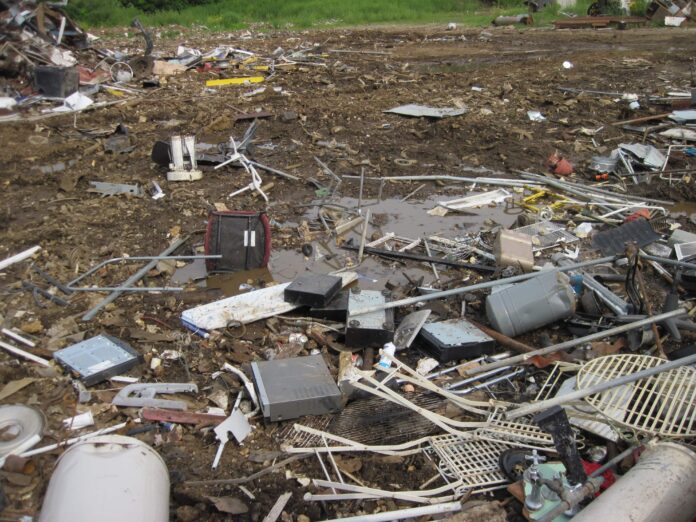We all have those old phones or laptops collecting dust in our homes, but why? The average person replaces their mobile phone every 2-3 years, but what do they do with their old phones?
Although consumers updating their tech on a continual basis, generating more than 50m tonnes of e-waste globally, only 20% of this is recycled.
Tech recycling specialists Envirofone have myth-busted the common misconceptions many of us have surrounding recycling our E-waste.
COMMON E-WASTE MYTHS:
- E-Waste is acceptable to put in regular bins
Unfortunately, this is wishful thinking. Your local council won’t separate your e-waste for you with a giant magnet. Everything you stick in that black bag will go straight into the landfill. But wait. It gets worse. Occasionally, you might think, so what? It’s just one tiny phone in a big pile of rubbish. What you’re not thinking about is what happens when your phone starts to erode.
When your phone decays in a landfill, all the toxic minerals used to make the battery, microchips, and wires seep into the ground.
- Recycling E-Waste is a data risk
Taking just a few moments to ensure that all sensitive information is cleared from your device can eliminate the risk of your data being stolen post-collection. Several apps and a variety of stand-alone software can be used for data wiping in ways that make your information wholly irretrievable or at least unusable after it’s sent for recycling.
- Keeping old devices in your desk drawer or stored away is harmless
It’s easy to get carried away with hoarding your electronics. After all, it’s less threatening to the environment than dumping your used electronics into the trash and they are less likely to end up shipped to a developing country where it could cause even more harm.
However, the rare and valuable materials contained in electronics are essential keys to the economy of the recycling industry. More importantly, they could help wean industries off less environmentally sound recovery processes like mining and fracking.
- The landfills are so massive that small devices won’t make a difference.
Although size does matter when it comes to electronics and landfills, the main point is that the hazardous contents of electronics, such as mercury and lead, can leak, leach and seep into the air and soil, leading to environmental and health issues. Hazardous substances may also eventually find a way to seep into groundwater, causing even more risks to public health.
5. Getting rid of e-waste is a hassle.
E-waste disposal is simple, provided you take the time to research and find a reliable company to help you recycle e-waste effortlessly. There are simple steps that each organisation or individual can take to ensure you’re doing your part to meet your sustainability goals and reduce your liability.
You may not think that your old technology is worth an awful lot, however you may be pleasantly surprised. By providing a few simple details to a tech recycling specialist you will receive a quote for your unwanted technology and it will be refurbished and off to a new home in no time.
You can learn more about trading in your second-hand phone for cash here.
Help keep news FREE for our readers
Supporting your local community newspaper/online news outlet is crucial now more than ever. If you believe in independent journalism, then consider making a valuable contribution by making a one-time or monthly donation. We operate in rural areas where providing unbiased news can be challenging. Read More About Supporting The West Wales Chronicle






















